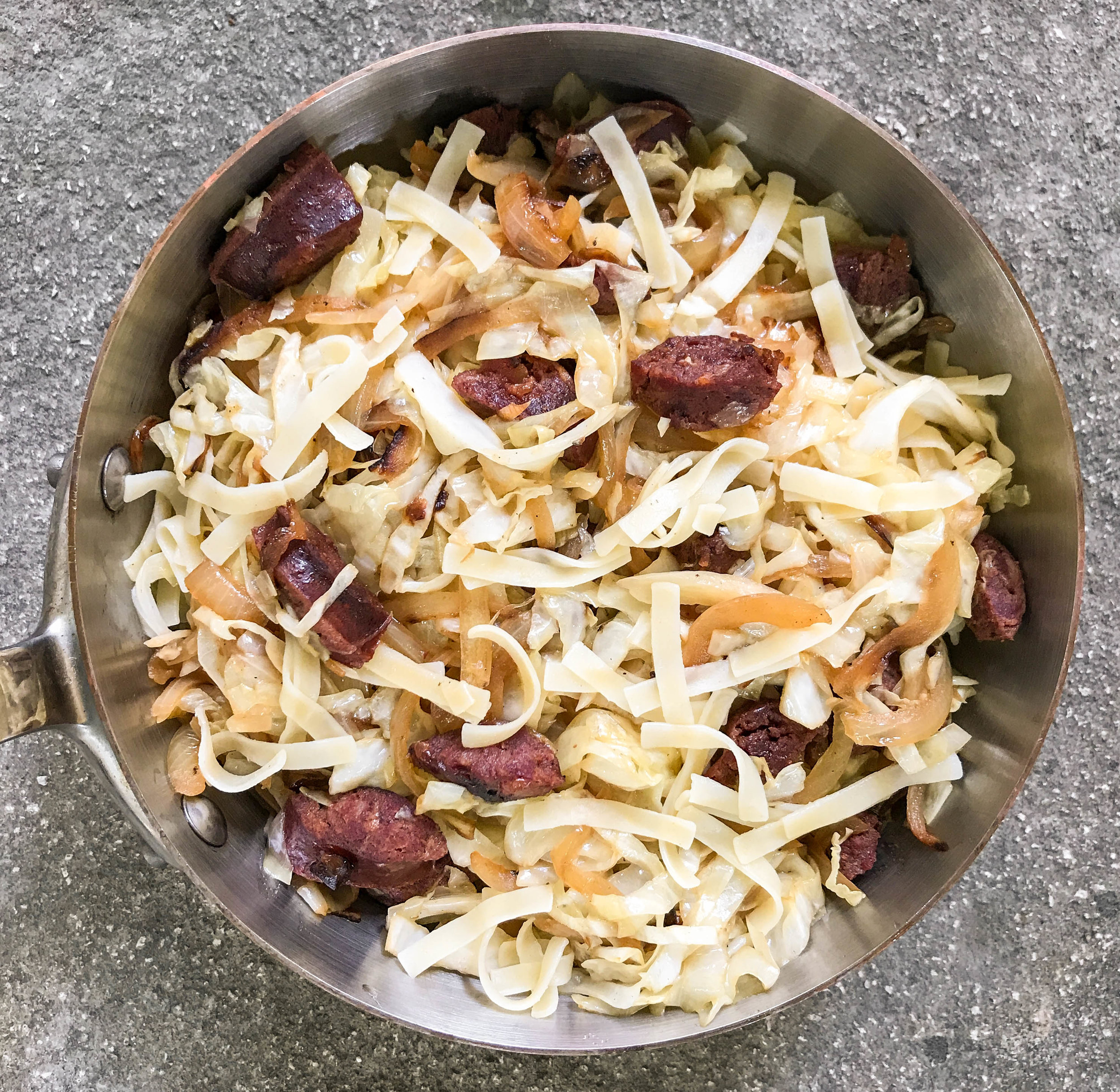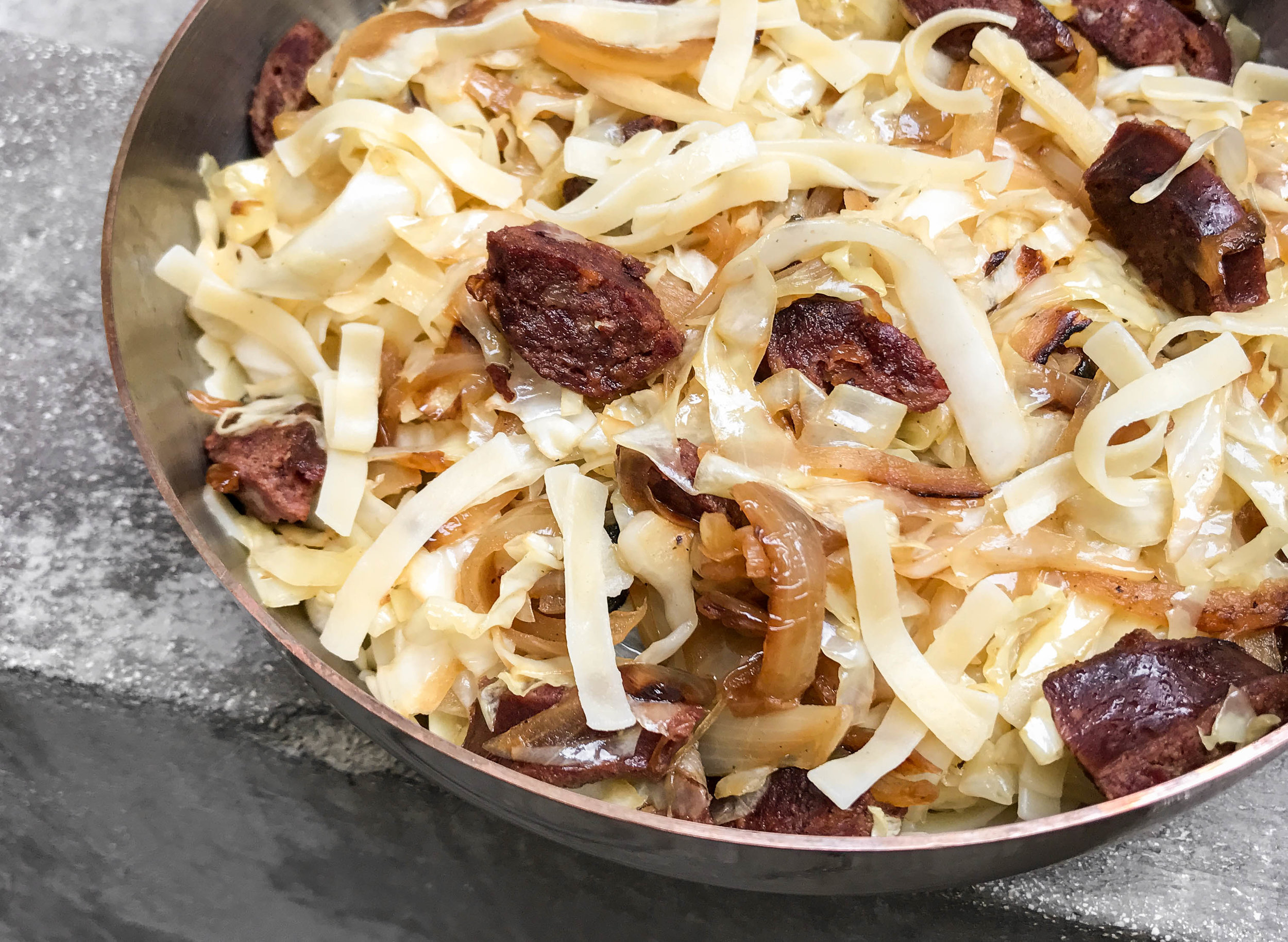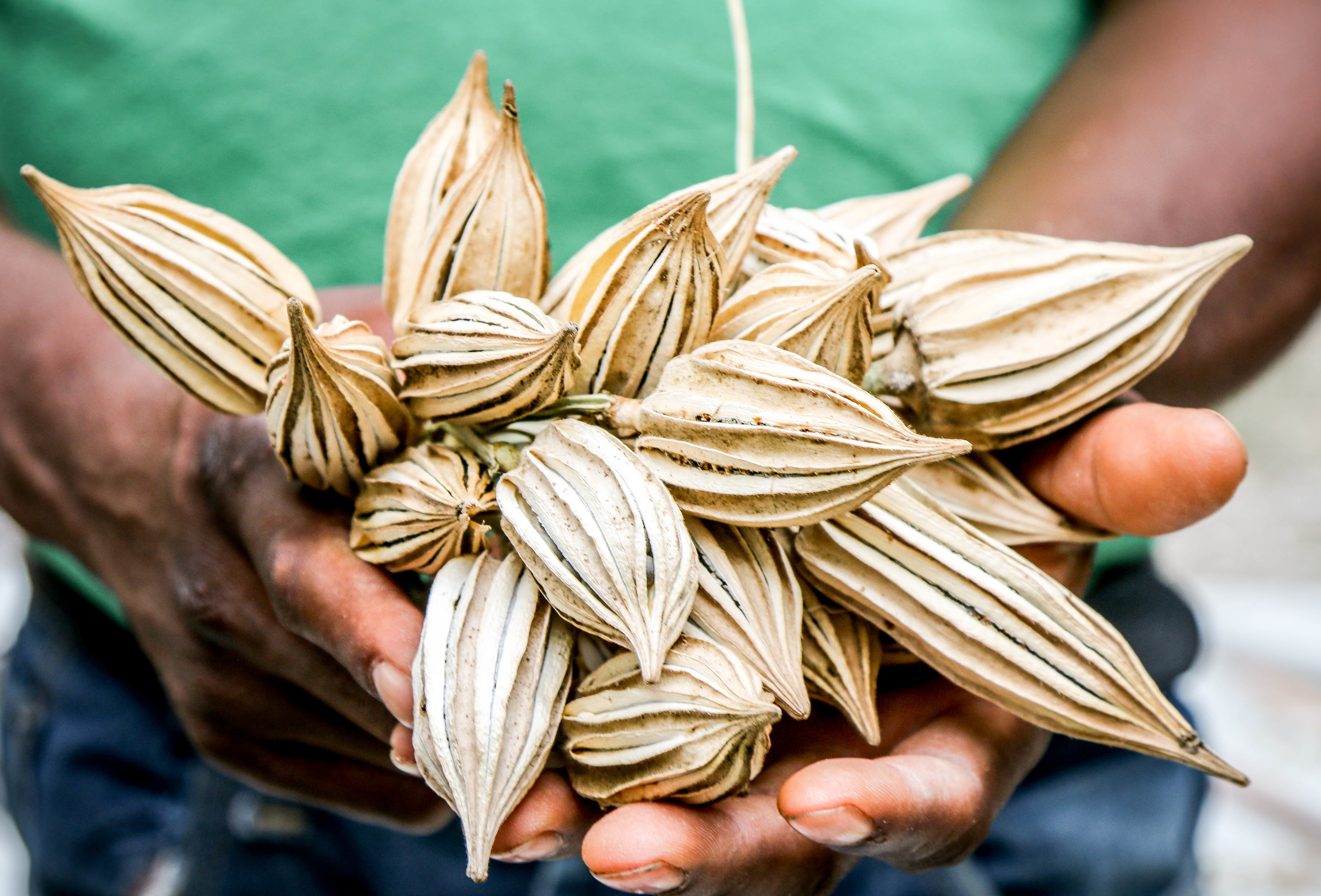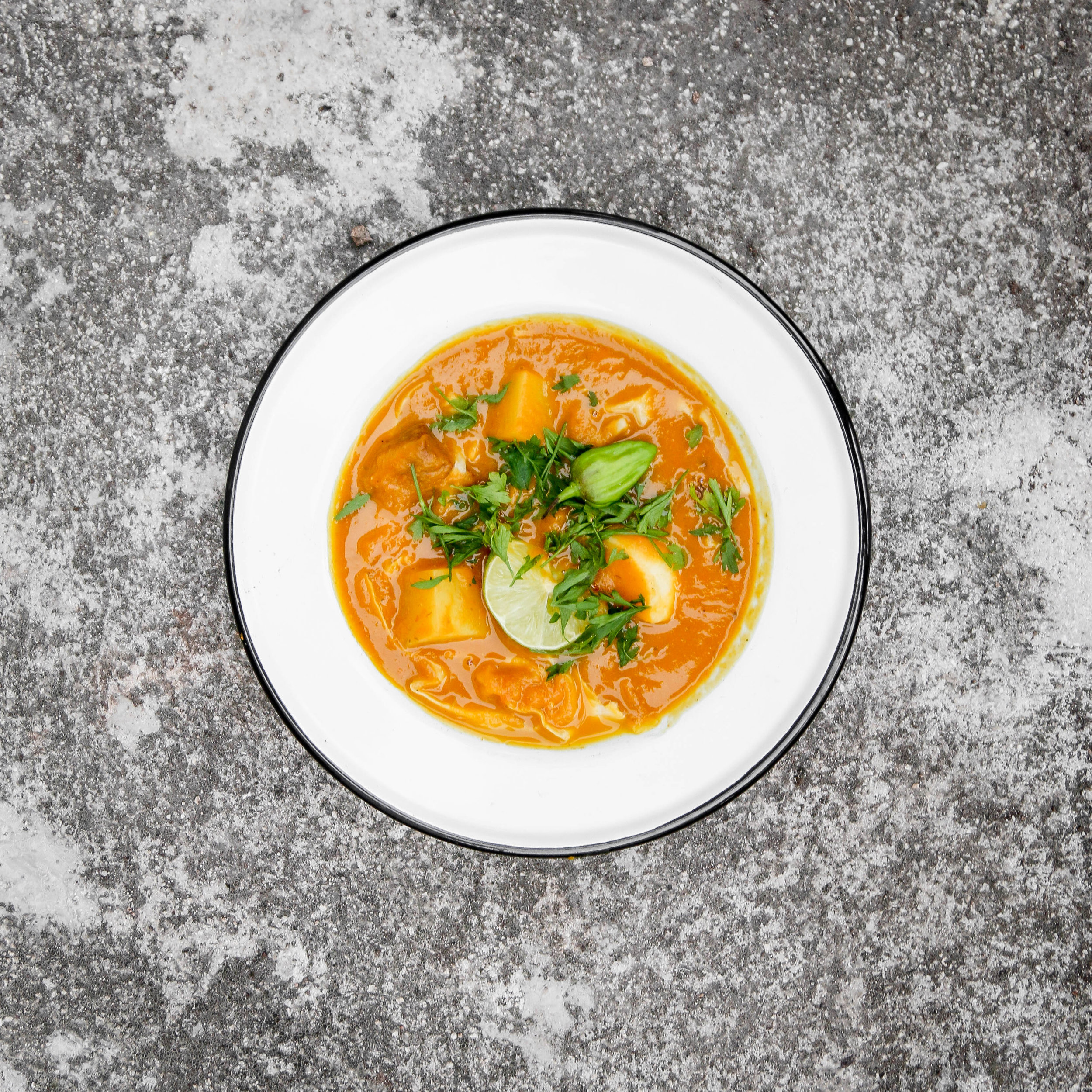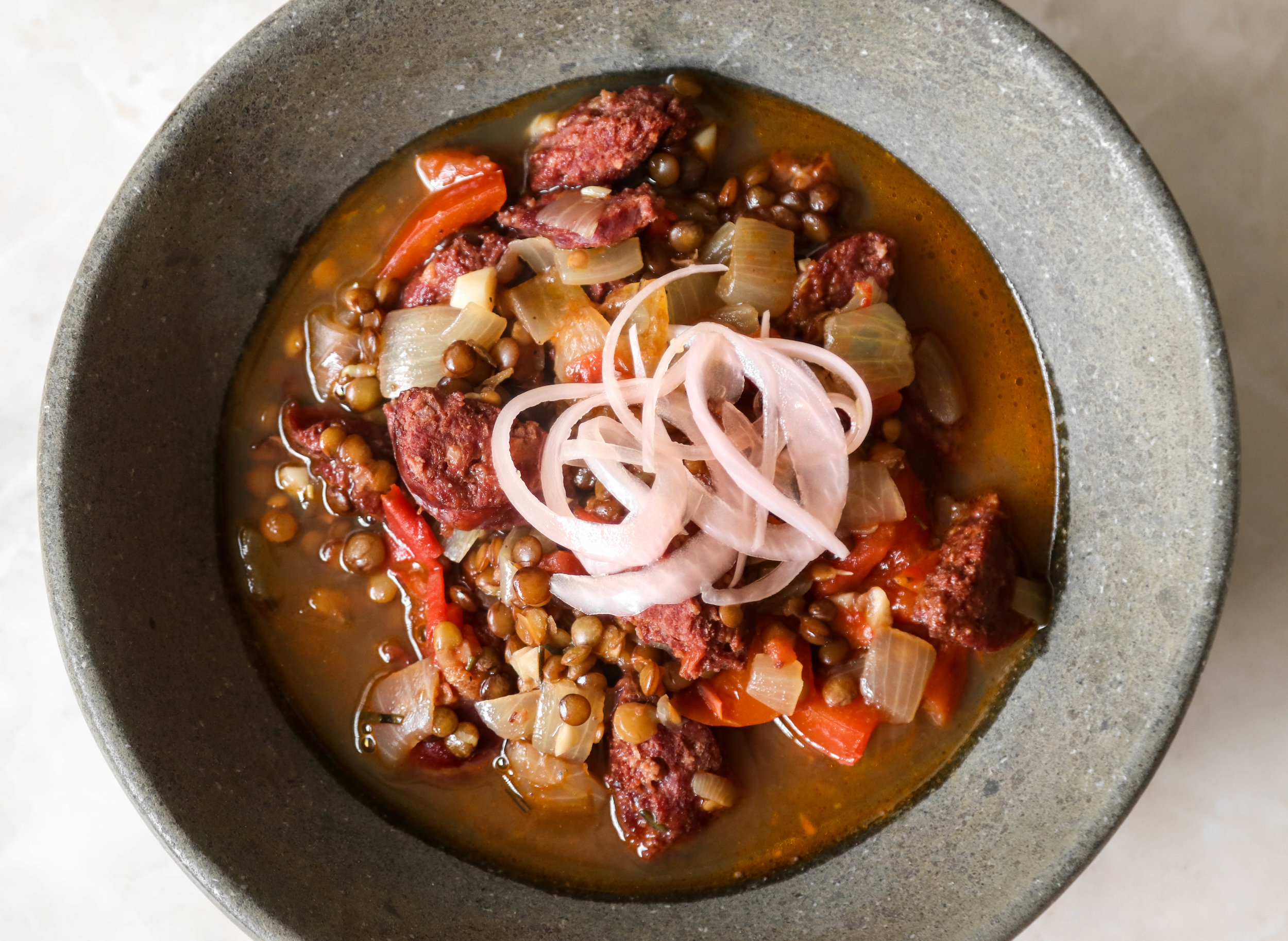Pittsburgh Style Haluski
Just over a week ago, Hurricane Irma swept past Haiti; bringing heavy rains, wind, and flash flooding to many of the communities we work in. These have been busy days of travel, hearing the stories of survivors, seeing the damage first-hand, and responding with food and emergency supplies to families who lost everything. My final trip last week was to the small community of Goyave, high in the mountains overlooking the coastal city of St. Marc. Goyave is a farming community that had been devastated by Hurricane Matthew last year. I was there to join in the celebration of a successful harvest and the end of an MCC project to help these farmers rebuild their gardens and livelihoods. Each of the 200 families who participated in the project brought a symbol of their good harvest. Soon our outdoor meeting area was filled with piles of beautiful fresh produce: cabbages, militon squash, corn, beans, avocados, onions, leeks, sour oranges, bananas, plantains, passion fruit, pumpkins, bell peppers, hot peppers, sugar cane, sweet potatoes, and yams. As we finished our meeting, a community elder stood up to speak, he reiterated his thanks for the project that had helped the community rebuild, and added that we all must remember the Haitian proverb, "Men ale, men vini, fe zanmi dire." This essentially translates as 'reciprocity is what makes for lasting friendships.' He advised that there were times when one needed to receive help, such as after a Hurricane, but that one must always work to give back. "It is bad for friendships if only one side gives," he said. So the community celebrated their rebuilding and their harvest by giving freely, to each other and to our group of visitors. It was humbling and beautiful to witness and receive this generosity. Arriving home late at night, dusty and tired, with a bag full of fresh cabbages and onions, I thought back to other celebrations and shared meals. I remembered many potlucks and meals with friends from our Pittsburgh days, and one of the region's classic comfort foods for shared celebrations -- Haluski. While there is much debate on whether Halsuki is authentically Polish (as is claimed by most Pittsburghers), there is little controversy about how simple it is to make, and delicious to eat. It is comfort food at its best: caramelized onions, cabbage, and kielbasa mixed with buttery egg noodles. A hearty and rustic crowd-pleaser, and a celebration of the season's bounty.
Freshly harvested produce being brought out to celebrate a bounteous harvest and the ending of a successful MCC project to rebuild gardens destroyed last year by Hurricane Matthew. Goyave, Haiti.
Yield: serves 4-6
Ingredients:
- 1/2 pound egg noodles
- 4 tablespoons butter
- 3/4 pounds kielbasa, cut into half rounds
- 3 medium onions, cut into slivers
- 1 small green cabbage, cored, outer leaves removed, thinly sliced
- 1/4 teaspoon black pepper
- 1 teaspoon kosher salt
Steps:
- Heat water to boil and cook pasta according to package instructions. Drain and set aside.
- While the water for pasta is boiling, add butter to an extra-large non-stick pan and add the kielbasa. Cook on medium heat until just starting to brown.
- Add the onion, and continue cooking, stirring frequently until the onions start to brown. This should take between 5-10 minutes.
- Add the cabbage, salt, and pepper to the pan, and continue cooking, stirring regularly. Cook until translucent and just starting to brown.
- Remove the cabbage-onion-kielbasa mixture from the stove. Combine with the pasta in a large mixing bowl and toss to fully combine. Serve warm.
